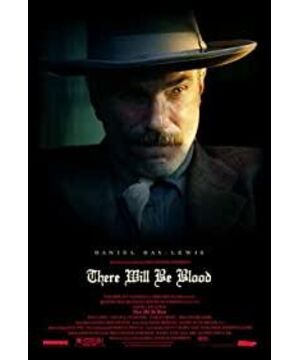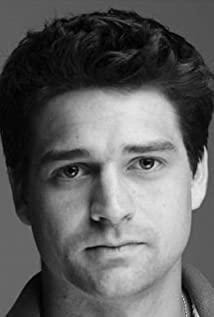To say that the most interesting thing is not the director himself, but the starring Lewis. This too famous British actor added too much brilliance to the film, and of course he also concealed some other things in the film because of his brilliance. . The first to bear the brunt of this is the pastor Paul Dano who loves stage performances. In fact, Paul’s performance in this film cannot be said to be unfavorable, but compared with Lewis’ veteran, Paul still performs too hard in some passages, which is a bit like Tony Leung's performance in "Blood on the Street", even the current Tony Leung admits that the performance at that time was a bit overstretched. I don't know how Paul will evaluate his performance in this movie in the future. But I have to admit that Paul does have a temperament that is difficult to replicate by Hollywood actors of the same age. This temperament is somewhat different in Hollywood. Just imagine if other actors play this role, can he have such a performance? It's difficult. In addition to the problem of too much effort, Paul should still be very good in this movie. I don't know why few people noticed him. At least Oscar didn't. Of course, there are many that Oscar didn't notice.
Another thing that is impressive is the soundtrack. Few movie concerts still let the soundtrack sound when the picture has been cut to the next content. It happened in this movie, and it started to feel strange, because Not in line with the previous movie-watching habits, but this soundtrack shows the inner struggle of the protagonist. Thinking about it this way, the theme of the soundtrack has continued.
Then there is the script itself. When I heard that the script was adapted from the novel "Petroleum", because I haven't read the novel, I don't know what kind of adaptation the director made to the novel, but no matter what kind of adaptation it is very successful. The oil master played by Lewis is not an evolution from a man to a devil. He was greedy from the beginning of the movie. He had to sell something before he broke a leg; he adopted a child in order to buy land to extract oil, and his original intention was to win. People’s goodwill; after Paul’s pastor revealed to him that there was oil in his home, he got the land at any cost, but he saw through Paul’s nominally raising funds for the church, but he actually had greater ambitions. Therefore, In the end, he didn’t give Paul a son to the pastor, even if it was the other things he had promised in the first place. Not only that, but he also humiliated Paul who came to collect debts in front of many people; in order to get his own oil pipeline. Being able to walk from the old farmer's land, he agreed to join the local church. After Paul humiliated him in the same way, he just whispered "The oil pipeline is in hand!" At the same time, he was pathetic. Greed pulled him step by step into the abyss. First, his adopted son lost his hearing in an accident. He sent his adopted son to a school for the deaf and dumb. In the end, he was humiliated by Paul and said that he had abandoned his son. Later, although the son was brought back, the seeds of hatred were planted in his heart; he is a very jealous person, but people always need a family, so he pretends to be his half-parent When he was a brother, he was deceived without hesitation, and when he discovered it, he unforgivably caused the liar's head to bloom; when he was finally old, his son wanted to leave him, and he was grateful for him, but he said The son is a bastard picked up by himself, completely turned into a lonely family.
The film deliberately highlights the contradiction between the oil master played by Lewis and the pastor played by Paul. Lewis is greedy, but he can't stand Paul's integrity. In particular, Paul’s performance was very explosive (and of course it made people feel it), especially on the trail with a strong sense of stage. Especially the actions and expressions of exorcism facing the camera at the end were really cult. At the same time, it also implicitly shows Paul's attitude towards Lewis. You are the devil. You bring wealth and benefits, but you also bring greed and desire. But the irony is that Paul was also occupied by the devil and slowly became greedy. He took advantage of people's kind hearts to achieve his own goals, and finally even deceived everywhere under the pretext of preaching, so that he finally had to borrow money from Lewis, who he thought was the devil. And Lewis also took this opportunity to ask him to call him a liar. Those so-called remarks are all superstitions. From this we can also see the director's banter and disdain for religion. This may be the reason why Oscars dare not give him the best film. Oscars are famous for being conservative. In the United States where mainstream people are Protestant or Christian, the Oscar jury dare not use its "money" to make jokes. So they can only give Lewis a best actor as an encouragement!
View more about There Will Be Blood reviews











